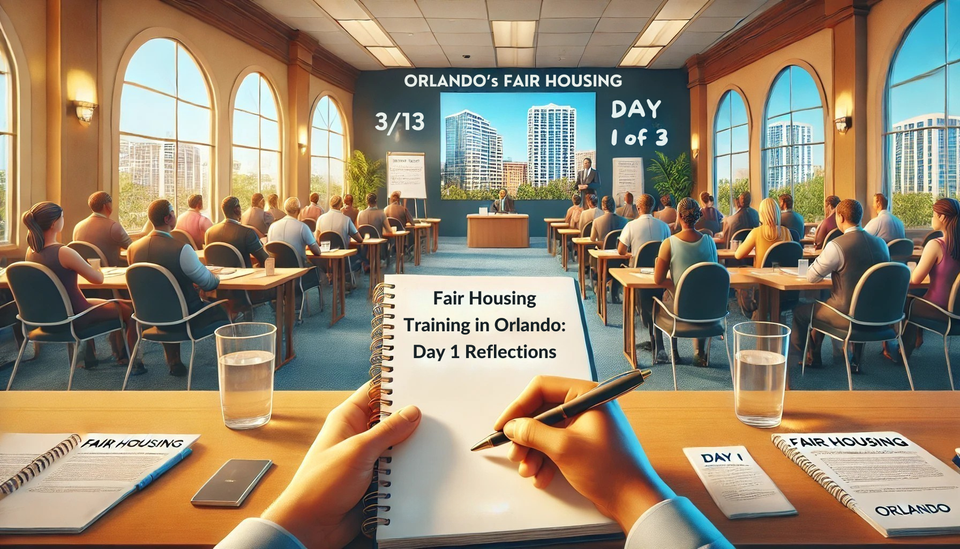Fair Housing Training in Orlando: Day 1 Reflections

I found myself at City Hall on a Wednesday evening—yep, that's how I'm adulting these days—attending the first session of a three-part Fair Housing Training put on by Orlando's Office of Human Relations. Why? Well, if I'm going to serve Orlando as a realtor, understanding housing law seems like a pretty solid first step.
Walking in, the room was buzzing with chatter, and I immediately got the feeling this wasn't going to be a typical "sit-down-and-be-lectured-to" kind of thing. The room had an oddly festive vibe (seriously, there were gift cards hidden under chairs). Jane Doe and Kim Rankin from the city had us mixing and mingling like we were at a networking event rather than a housing law seminar. Smart move—everyone was instantly at ease.
The session opened with a Bingo game designed to highlight protected classes under Fair Housing laws: race, color, religion, national origin, sex, familial status, disability, sexual orientation, and gender identity. Here’s something surprising: the biggest misconception about fair housing is that it mainly applies to racial discrimination. Turns out, disability and familial status are the real heavy hitters in discrimination complaints here in Orlando.
Kim Rankin hit us with some stories from real cases, like a landlord who lost rent because their tenant’s service dog weighed just one pound over the complex's arbitrary pet weight limit. Spoiler alert: the landlord won their claim because service animals aren't pets—no weight restrictions apply. That one definitely raised a few eyebrows in the room.
And then came the "familial status" bombshell: apparently, communities labeling themselves as “active” or “adult-only” might be stepping on thin ice. When you peel back the coded language, it often excludes people with disabilities, families with children, or anyone who doesn't fit the "active" mold. Not cool. As Orlando grows and evolves, it's vital that we stay alert to these subtle forms of discrimination.
A memorable part of the evening involved the discussion of what counts as "reasonable accommodations." Kim and Jane clarified: if it's government-funded housing, they foot the bill. Private landlords, however, aren't automatically on the hook—but they must allow tenants to make modifications at their own expense. For instance, adding a ramp or specialized bathroom fixtures could be necessary accommodations for tenants with disabilities. Orlando landlords take note: ignoring these requests could land you in some hot water.
By the way, did you know emotional support animals aren't limited to dogs and cats? We heard about a local case where someone successfully got approval for an entire flock of chickens. Chickens, folks. Apparently, caring for animals helps soothe anxiety, and yes, a doctor's note backing it up made it legit. I'll admit, it left me reconsidering some life choices...
So, what's the bottom line for us Orlando Realtors? Fair Housing laws protect everyone, not just certain groups. Misunderstanding this stuff is surprisingly common and could be costly for you and your clients. It's not just about avoiding lawsuits—it's about truly fostering diverse, inclusive neighborhoods in our community.
Next week’s class promises even more insights, and frankly, I’m pretty excited (and slightly amused) to see what's hidden under my chair this time. Until then, fellow Orlando real estate enthusiasts, stay fair and stay fabulous.